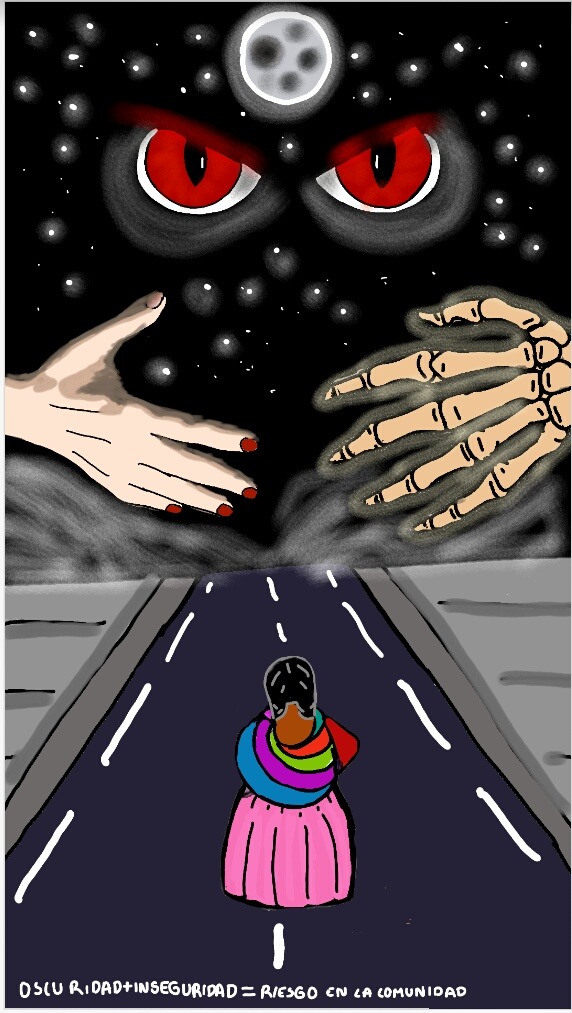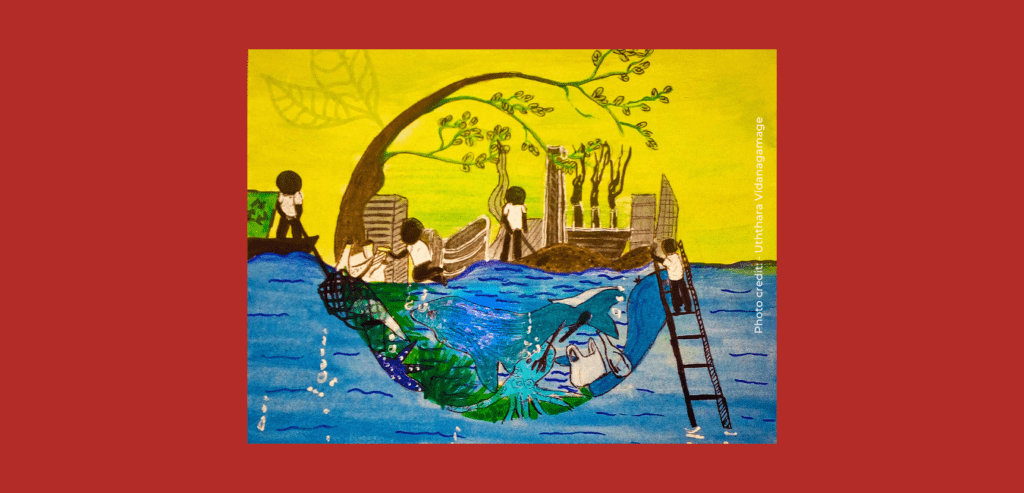Author: Cities 4 Children
There are plenty of benefits to engaging young people in contests and competitions. They provide space for creativity and for those who rarely have a voice to share personal reflections and knowledge.
But running a contest with input from young people across the world, spanning language and cultural barriers, isn’t always straightforward. Here’s what ICLEI and Global Infrastructure Basel Foundation (GIB) discovered when they reflected on a recent competition they ran as the kick-off activity for the new Safe and Sound City Program (S2City) .
The Global Youth Safety in Urban Environments competition, organized from August – September 2021, was aimed at young people between 15 and 24 years old. The competition asked participants to answer a standardized survey on their subjective experiences with safety as well as submit an original photograph, video or drawing of a safety issue relevant to their daily life. 150 young people from 33 countries participated in the competition.
ICLEI and GIB recently reflected on some key learnings which may help others running similar competitions:
Allow enough time for submissions
“Mobilization takes time, and so does creativity. By defining too short of a time frame upfront, a lot of promising entries could be lost,” the Competition Results Report prepared by GIB and ICLEI found. Not everyone runs on the same time frame, so what works for you, with resources and fast Internet, might not be great for a young person living in sub-standard housing with limited access to computers or mobile devices.

Luis Cruiz, Bolivia: DARKNESS+INSECURITY=RISK IN THE COMMUNITY.
NIGHT-TIME INSECURITY.
Consider the most democratic way to choose winners
In the case of the Global Youth Safety Competition, organizers found that “the finalists from Bangladesh clearly were able to achieve amazing mobilization, as they have specifically high Facebook usership between the ages of 18 and 24.” Organizers also found that Facebook isn’t the preferred social media platform of choice in some countries, which means a variety of platforms could have been better, e.g. Instagram or TikTok.
How to reduce admin headaches while judging
You don’t need to worry about getting all the scores from the judges manually. This is especially frustrating if you’re judging across different timezones. Luckily, there are a a number of platforms and tools that are more user-friendly than Excel. Judgify, Submittable or Open Water offer full competition management systems. They can be expensive if you’re investing for a one-off competition, but they pay off when used repeatedly.
Manage expectations and ensure the brief is clear
From the 150 submissions which ICLEI and GIB received for this competition, eight were irrelevant or did not conform to the zero tolerance policy, and so had to be disqualified. Ensure the brief is clear and easy-to-follow. If you find lots of submissions coming in that miss the mark, consider the misunderstanding may lie in the brief rather than with the respondent. If it’s a competition for children, find a child (yours or a friend’s) and ask them to be a test subject to see if it’s clear.
If you plan to run a competition whose purpose is to feature original work from young people, ensure you have processes in place for protecting your organisation and young people from legal recourse for possible copyright infringements. Ensure your terms and conditions explain what is meant by copyright infringement, as not all young people may be familiar with the term, and clearly state that submissions must be original and otherwise cited properly. Also communicate to young people in advance which steps will be taken in case of copyright infringement. In addition, consider including an extra step in your evaluation of the entries to check for copyright infringements before sharing the entries publicly. It may be necessary to conduct regular checks for copyright infringements, for example an extra check before awarding prizes, so plan your time and resources accordingly.
Dissemination
If Covid-19 is an ongoing pandemic, then it may create dissemination challenges when it comes to running competitions. For the purposes of this competition, the organizers intended to reach students through teachers. However, the organizers soon learned that many schools were closed due to Covid-19, therefore they could not reach young people through teachers as easily as expected. This fed into the organizers’ decision to extend the deadline, and meant they had to rely more on social media outreach. If reaching out to global contacts and partners to assist with amplification and dissemination, ensure that you reach out well in advance and perhaps more than once. Think also about approaching organizations which produce global newsletters/maintain global mailing lists for young people and ask for your initiative to be included in these mailings.

Muntasir Muhit, Bangladesh: Unpaved road for traffic. Which is risky to use. Next to it is a pile of garbage.
Protection
Child protection is paramount. Whenever you’re engaging young people, ensure you achieve full consent to use their information publicly. If the young people are minors, ensure you have legal guardian consent. Staff protection is also important. Ensure your zero-tolerance policy is clear in terms of which content is acceptable, to protect your staff from potentially explicit or graphic content. Ensure you also have a decision process in place in case you do receive content which raises legal questions.
Awards
Consider whether you will provide physical rewards or whether appreciation of the acknowledgement is satisfactory. If you plan to offer awards, think carefully about the logistics of delivering them. If the award is a physical object, it may be difficult to ensure the item reaches the young person’s address if you don’t have a local presence or partners in the area. If the award is monetary, then considering possible risk factors, for example corruption, is important.
See more of the submissions here
ICLEI – Local Governments for Sustainability is a global network of more than 2500 local and regional governments committed to sustainable urban development.
GIB: Envisioning a world where sustainable and resilient infrastructure are the norm rather than the exception.

